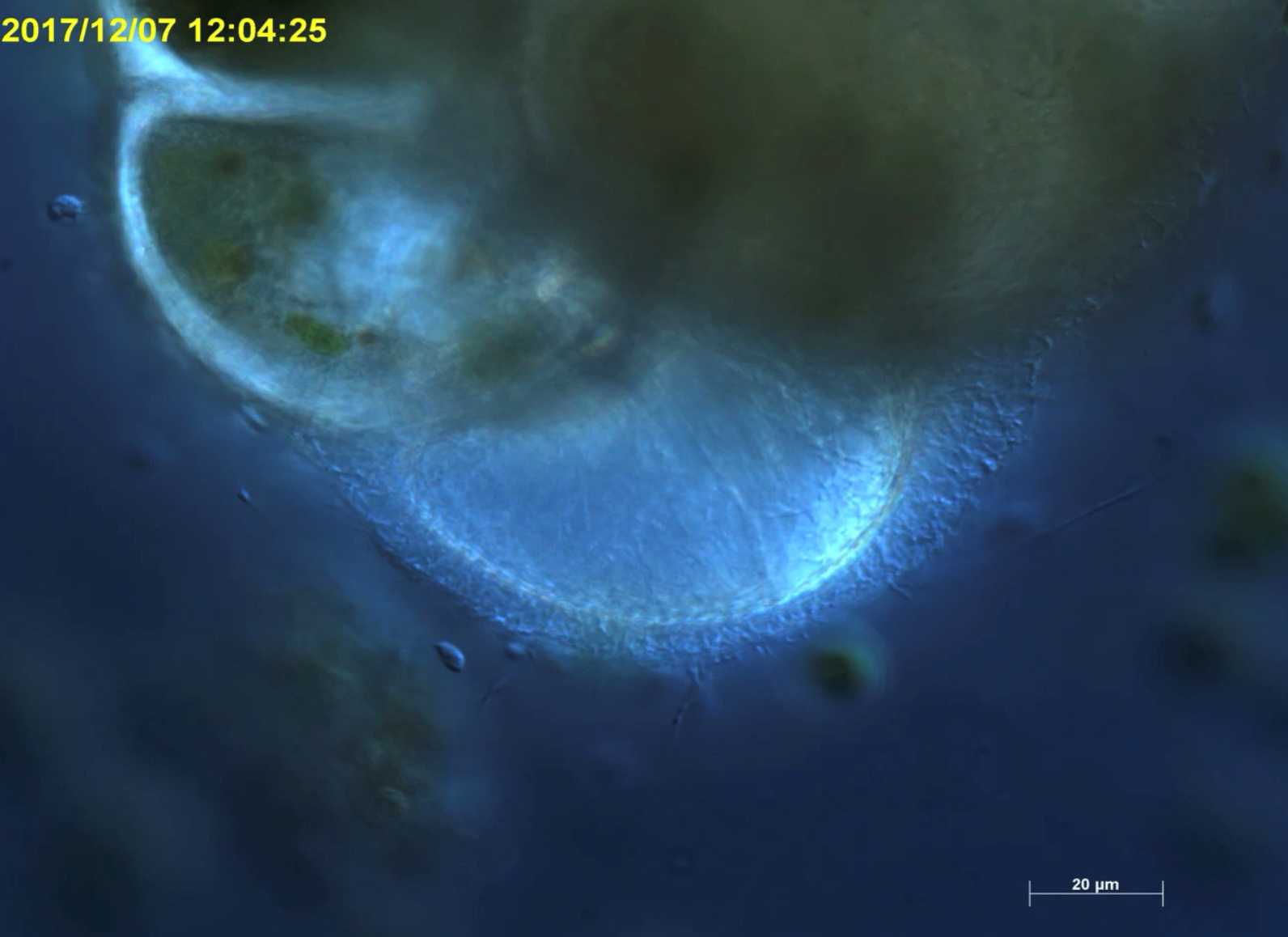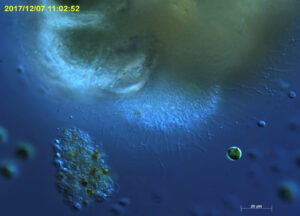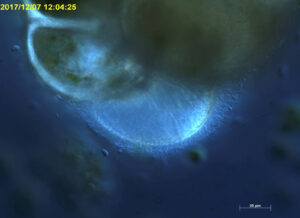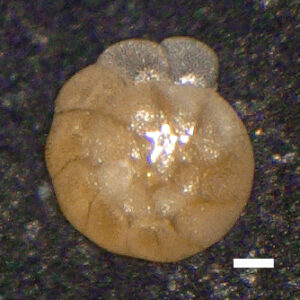
Foraminifera, single-celled eukaryotes that construct shells (i.e. tests) of calcium carbonate, have played a vital role in the marine ecosystem’s lower trophic levels for hundreds of millions of years, incorporating CO2 in sea waters. In modern oceans, for example, in coral reef areas, they can produce between 10 to 1000 grams of calcium carbonate per square meter annually. Fossil records reveal that during geological periods such as the Jurassic and Cretaceous, which had significantly higher temperatures and carbon dioxide levels, foraminifera proliferated explosively. This suggests that foraminifera have the resilience to survive in extreme environments and are key agents in converting CO2 into a mineral substance. We promote research on the dynamics of CO2 through research on the calcification of foraminiferal tests.



